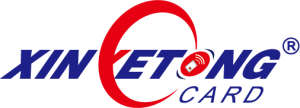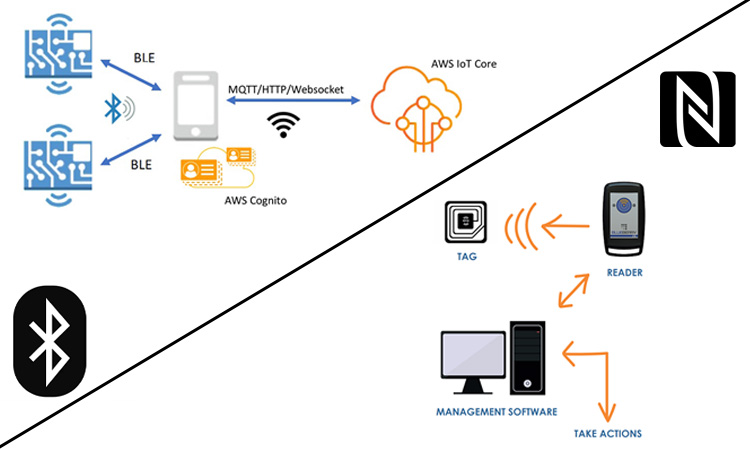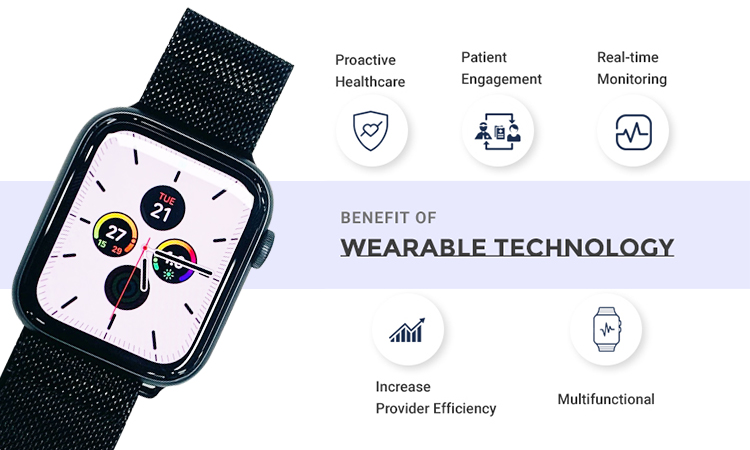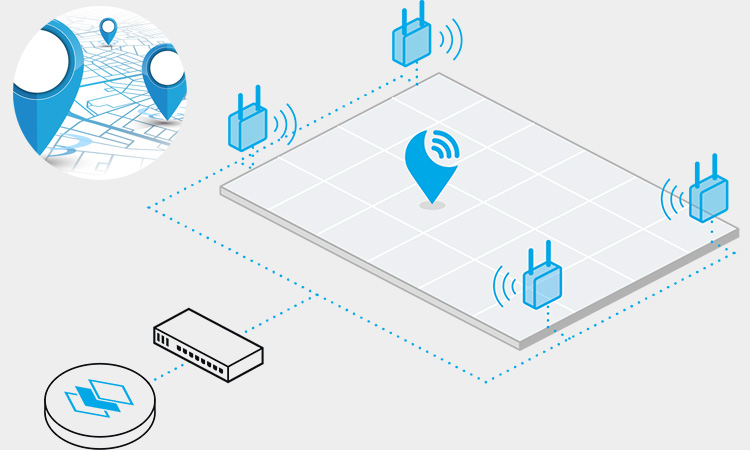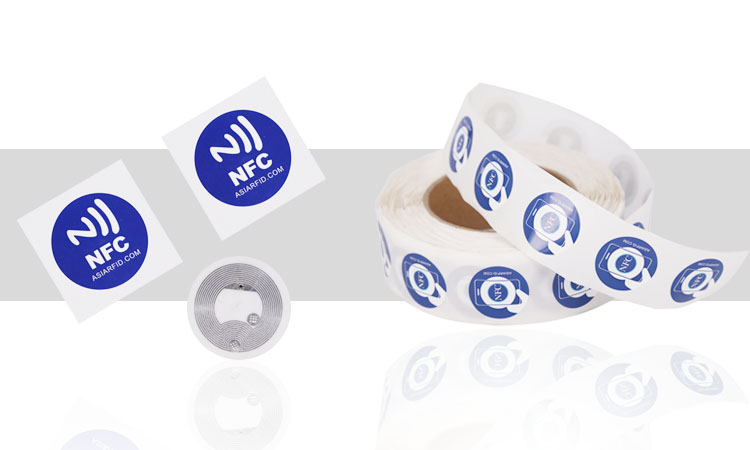In today’s market, product authentication is becoming increasingly important. With the rise of counterfeit products, companies seek ways to protect their brand and ensure their customers receive authentic products. One solution that has gained popularity is RFID packaging.
What is RFID Packaging?
RFID packaging, also known as RFID-enabled smart packaging, incorporates RFID (radio-frequency identification) technology. It contains an RFID tag, a small electronic device with a unique identifier communicating wirelessly with an RFID reader. The RFID tag or chip is embedded in the packaging, allowing for easy tracking and authentication of the product throughout the supply chain.
RFID tags are a high-tech solution for creating “smart” packaging. They consist of a small chip, an antenna, and an encoding that provides identifying information. When an RFID reader interacts with the tag, it receives real-time updates on the product’s location, condition, and status. This is useful for monitoring environmental factors like temperature and humidity to ensure the product stays in good condition during transport and storage. RFID tags can also help with inventory tracking, theft prevention, and automated checkouts. They can even be used in product certification to ensure products meet certain standards and regulations.
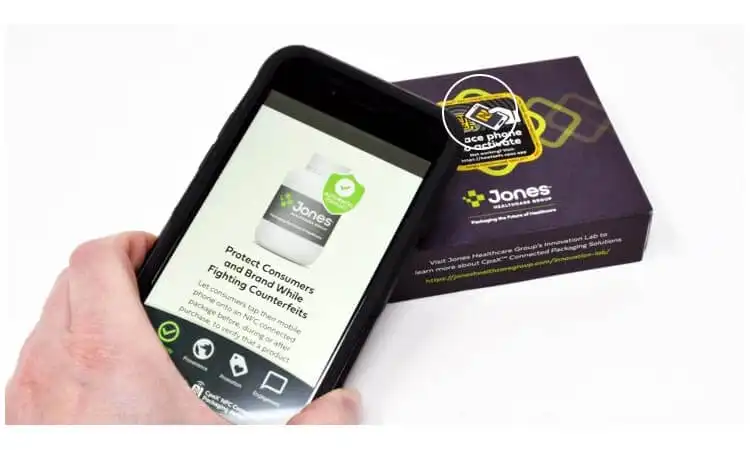
How do You Know if a Product has an RFID?
RFID technology allows for product identity to be detected using an interrogator close to a product, typically within a few yards. The RFID tag is often embedded in the product packaging, such as in the price tag. To check if a product has RFID technology, you can look for a tag or label on the packaging that indicates its presence. However, you need to note that not all products have RFID technology, and some RFID tags may not be visible to the naked eye.
Benefits of RFID Packaging for Product Authentication
RFID packaging is a valuable tool for product authentication. Here are some of the benefits:
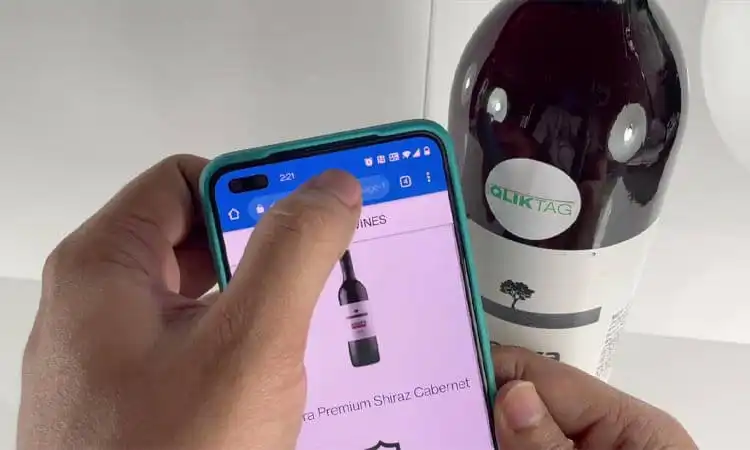
RFID Package Tracking
One of the main benefits of RFID packaging is package tracking. Using smart packaging with RFID technology, companies can track their products throughout the supply chain. This helps prevent counterfeiting and allows companies to identify and address any issues in the supply chain.
Increased Product Security
RFID-enabled smart packaging provides an extra layer of security for products. The RFID chip or tag can be programmed with unique identification information, such as serial or batch numbers. This makes it easy to authenticate the product using an RFID reader.
Improved Supply Chain Efficiency
RFID-enabled smart packaging can also improve supply chain efficiency. With RFID-enabled smart packaging, companies can track the movement of their products in real-time. This allows companies to better inventory management and reduces the risk of lost or stolen products.
Better Customer Experience
RFID-enabled smart packaging can also provide a better customer experience. Customers can use their smartphones to scan the RFID tag and access information about the product, such as its origin and authenticity. This can help build trust with customers and increase brand loyalty.
NFC tags are a great tool for verifying the authenticity of a product. They provide a unique identifier that is hard to copy and come with a digital signature that a reader can check. This makes it easy to confirm that a product is genuine and hasn’t been tampered with. NFC tags are especially useful for preventing the sale of counterfeit products, which can be dangerous for consumers. By using NFC tags, manufacturers can protect their brand and revenue while ensuring their customers receive authentic products.
As a manufacturer or importer of consumer products, it’s important to follow all safety regulations enforced by the Commission. One way to do this is by obtaining product certification. This involves certifying in writing that your products meet the necessary requirements. Additionally, voluntary standards or certification information may apply to your specific product.
Certification organizations use the ISO/IEC 17065 standard to demonstrate competence. This international standard guarantees that certification bodies have the qualifications to deliver dependable and uniform certification services.
Another option is to work with a company like UL, which provides product certification services. This can help you meet regulatory requirements and make your product stand out in the market.
Who are the Providers of RFID Packaging?
If you’re looking for RFID products, several providers offer a range of products for various industries. Some of the top providers include:
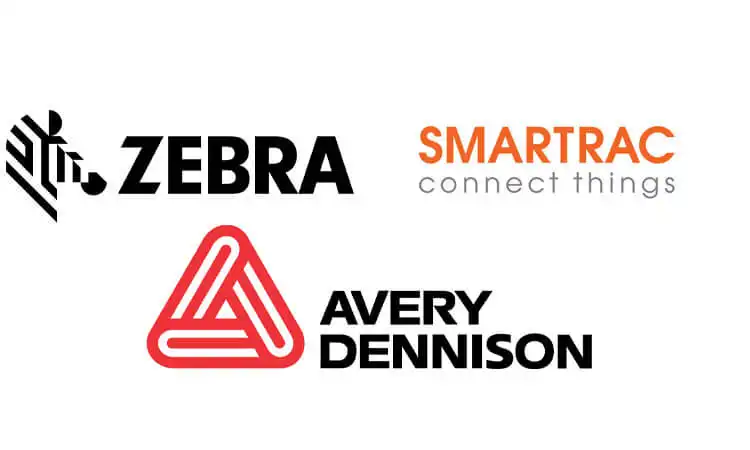
- Avery Dennison: specializes in RFID tags, labels, and inlays for retail, healthcare, and logistics industries.
- Zebra Technologies: offers RFID solutions for asset tracking, inventory, and supply chain management. They provide RFID printers, readers, and antennas.
- Smartrac: a global provider of RFID products and services with a focus on RFID tags, inlays, and labels for retail, healthcare, and logistics industries.
- Alien Technology: provides RFID readers, antennas, and tags for asset tracking, inventory, and supply chain management.
- Impinj: a leading provider of RAIN RFID solutions. They offer RFID readers, antennas, and tags for retail, healthcare, and logistics industries.
What RFID Packaging Resources Can We Find?
RFID Packaging Resources refer to materials and information about using RFID technology in product packaging. By integrating RFID tags or chips in packaging, businesses can track and verify their products throughout the supply chain. If you’re looking for these resources, there are several options available. You can explore RFID Packaging Providers and RFID Printer Providers that specialize in offering RFID-enabled packaging and printing solutions. Additionally, you can find online resources like the RFID Packaging Resources website, which provides comprehensive information on RFID technology and its applications in packaging. These resources can help you better understand RFID technology and how to use it in your packaging strategy.
RFID Usage in Packaging
RFID technology has gained popularity in the packaging industry. Businesses strive to optimize their supply chain operations and improve product traceability. One of the most common applications of RFID technology in packaging is the use of RFID chips for packaging. This enables businesses to track and authenticate their products throughout the supply chain. Another popular application is the use of RFID in food packaging. RFID chips in food packaging are used to monitor the temperature and freshness of food products. Additionally, RFID technology is also used in RFID card packaging, RFID in packaging and labeling, RFID tag packaging, and RFID pharmaceutical packaging to enhance inventory management and prevent counterfeiting.
RFID packaging is becoming increasingly popular for product authentication and supply chain efficiency. By using RFID technology, businesses can track their products in real time and provide an extra layer of security, making detecting any issues and preventing counterfeiting easier. This not only helps to improve product quality but also helps to build consumer trust, which is crucial for any business. RFID-enabled smart packaging is a valuable investment for companies looking to protect their brand and improve their processes.
